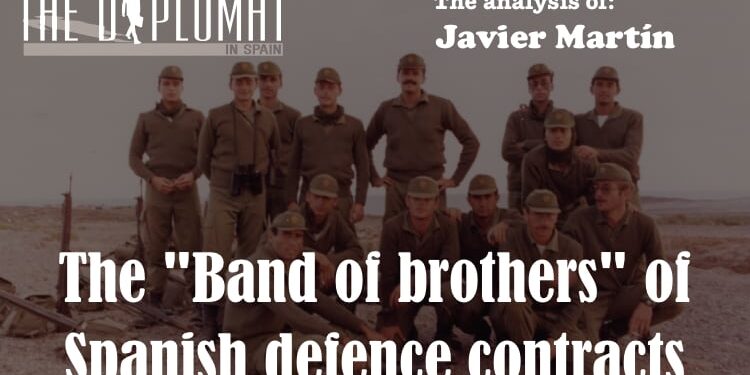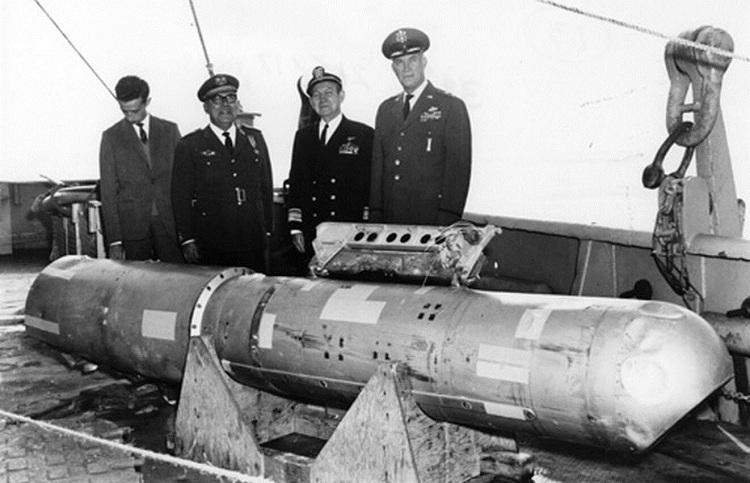SUMMARY
Europe’s need for rearmament has led to the defence industry now being a lucrative business for a number of recycled family firms. However, many in the sector are already sounding the alarm about the lack of control when it comes to drawing up specifications and awarding tenders in the Ministry of Defence itself. According to the CNMC, which is investigating their activity, these companies were able to share out contracts through non-competition agreements.
Javier Martín
“Band of Brothers” is what is said to be the best military series on television. And the Spanish defence industry also has its own particular band of brothers in the three armies in the best media series style; companies that were small workshops close to the barracks and which have recently experienced a surprising development linked to the multi-million dollar defence budgets: an accumulated investment of 60,000 million euros is estimated for the period 2022-2030.
As far as the army is concerned, there are three of these enterprises known even by their nicknames: “Los Del Río” (no relation with ‘Macarena’ song), “los chatarreros” (the scrap merchants) and “los chapistas” (the sheet metal workers).
“Los chatarreros” (scrap dealers) is the nickname by which many military personnel and part of the Defence Industry know the Moreno brothers of the company Cohemo. Cohemo (Comercial Hermanos Moreno) S.L. started its activity in 1993 as a small family business whose main activity was the distribution of spare parts for military vehicles for the Spanish Army. At that time, its operations centre was located in the industrial estate ‘El Álamo’, in the Madrid town of Fuenlabrada.
According to its own website, and depending on military orders, “over time Cohemo, S.L.U. has evolved in such a way that it has managed to become a modern company with a much wider range of activity, which encompasses the modernisation, repair, manufacture and distribution of spare parts for all types of military vehicles, whether on wheels or on chains“. For this reason, and since 2000, it moved its facilities to the “Las Nieves” Industrial Estate in the municipality of Móstoles, where it had initial facilities of 1,300 m2, which included offices, workshops and warehousing on different levels. This exponential growth has led it to have modern facilities in its current location, in the “Las Pajarillas” Industrial Estate in Móstoles, where it has more than 30,000 m² dedicated exclusively to the defence industry.
The second of our “Band of Brothers” firms, as they are known in the world of the defence industry, is the firm Star Defence Logistics & Engineering (SDLE), or “the Del Rio” – after the surname of its founders, the Estrella Rio brothers – located in Polígono Industrial 1, Calle C, 24, also in the Madrid town of Móstoles.
With more than 10 years of experience, on their corporate website they define themselves as “a modern, innovative and sustainable European company with more than 200 employees and a global presence”. Our great diversification of products and firm commitment to technological development,” they explain, “places us as leaders in the provision of cutting-edge solutions in the military and civilian markets. We have been growing for more than 10 years, offering everything from the supply of spare parts for military equipment to the integral development of technological solutions for civilian and military customers. In this time, our team and our facilities have been changing to face a continuous expansion process that places us today as a benchmark for innovation and sustainability in our sector, and with lines of research in robotics, nanotechnology and artificial intelligence”.
Regular suppliers to the Spanish Armed Forces, they also claim to be official suppliers to NATO and the United Nations, as well as having a presence in more than 25 countries on 4 continents and being leaders in countries such as Jordan.
Over the last five years, Aurelio Estrella Río’s company, according to data from the Commercial Register, has received more than 400 contracts from the Ministry of Defence worth 73.4 million euros.
However, Star Defence Logistics & Engineering, SDLE in its acronym, is not going through the best of times. A few weeks ago, the National Police arrested in Madrid and Valencia four of its main executives and a citizen of Libyan origin responsible for the RADA-SDF, a Salafist paramilitary group.
The police operation focuses on the smuggling of dual-use defence material. Specifically, the purchase and sale of drones with thermal cameras and systems against this type of weapon. At the beginning of the investigation, in 2020, the Libyan was identified as the person who was taking all this material to his country.
The Spanish SDLE anti-drone system was destined for Tripoli airport, the capital of Libya. The infrastructure is under the control of the militia led by the fifth detainee. The market value is estimated at more than two million euros. And selling military equipment to Libya is prohibited by the sanctions facing the Middle Eastern country.
And the third of the companies in this unique saga of families involved in the world of defence contracts is that of the now popular Escribano Brothers, the “sheet metal workers” as they are popularly known in this world.
Ángel and Javier Escribano Ruiz are the two brothers behind Escribano Mechanical & Engineering, a company founded by their father Angel Escribano, a milling lathe operator, in 1989. From that small workshop in Coslada (Madrid) has grown a company with five buildings in Alcalá de Henares covering an area of 75,000 square metres, with more than 700 employees, a turnover of more than 90 million euros and a presence in more than 25 countries.
According to its own corporate website, Escribano M&E is currently “an international benchmark in Complex Defence Systems”. Its products include, on the one hand, stabilised platforms for land, naval and air applications; on the other, the integral design, development and production of thermal cameras and sensors for border surveillance. It also has, as its website explains, high mechanical, electronic and optical manufacturing capabilities, as well as an engineering department. As a result, EME carries out the complete development of its products in its own facilities and adapts them to customer needs without the intervention of third parties.
It is this success that has led them to be the focus of criticism from their competitors for their alleged closeness to the government of Pedro Sánchez and their “notable success” in winning many of the contracts awarded by the Ministry of Defence, where, they claim, the doors are wide open to them.
Just last week ESCRIBANO M&E opened a representation and lobbying office in Brussels to be closer to where most of the major European arms contracts are currently being negotiated.
The war in Ukraine, and the need to rearm Europe and NATO in the face of the Russian threat, has meant that the defence industry is now a lucrative business for this type of recycled family companies that competes with a knife in its mouth in the awarding of all kinds of arms programmes.
Lack of control over tenders
Many in the sector are already sounding the alarm at the lack of control when it comes to drawing up specifications and awarding tenders in Margarita Robles‘ own ministry. A more than striking example is the recent appeal of a million-dollar Defence award in which it was alleged that the winning company hired its only employee “three days before”.
This contract, appealed by one of the bidding companies, amounts to 18 million euros and is for the supply of parts to purchase spare parts for BMR and VEC armoured vehicles of the Spanish Army to a company that claimed to have 100% of its staff with disabilities in order to win the public tender. However, it had only one employee, who was also a person with a disability, and who was hired “three days before” submitting its bid for the public contract, as we noted.
And this would only be the tip of the iceberg of one of the cases that are beginning to see the light of day. Interestingly, in the last five years, the maintenance of Leopard tanks has been awarded mainly to companies that are being investigated by the CNMC for allegedly manipulating public contracts related, in particular, to military vehicles.
Last July, the National Commission for Markets and Competition (CNMC) also fined four companies and six managers for splitting several Ministry of Defence tenders through two cartels. The investigation covered January 2016 to June 2021, and found that the companies rigged the price in contracts related to the supply, maintenance and modernisation of military vehicles. SDLE was one of those fined, and in fact the worst offender with a fine of 3.3 million.
According to the CNMC, the companies shared contracts. Specifically, they carried out non-competition pacts, issued cover bids, withdrew or did not justify bids, and instrumentalised the temporary joint venture (UTE) system.
The anti-competitive agreements affected almost a hundred contracts, valued at 60 million euros: 13 framework agreements (MAs), their corresponding 81 contracts (CBAMs), and 10 other public contracts. These tenders related to the maintenance of military vehicles (such as the Centauro, Leopard, Pizarro, BMR, VEC and RG-31) and camp equipment.
© This article was originally published in Escudo Digital







